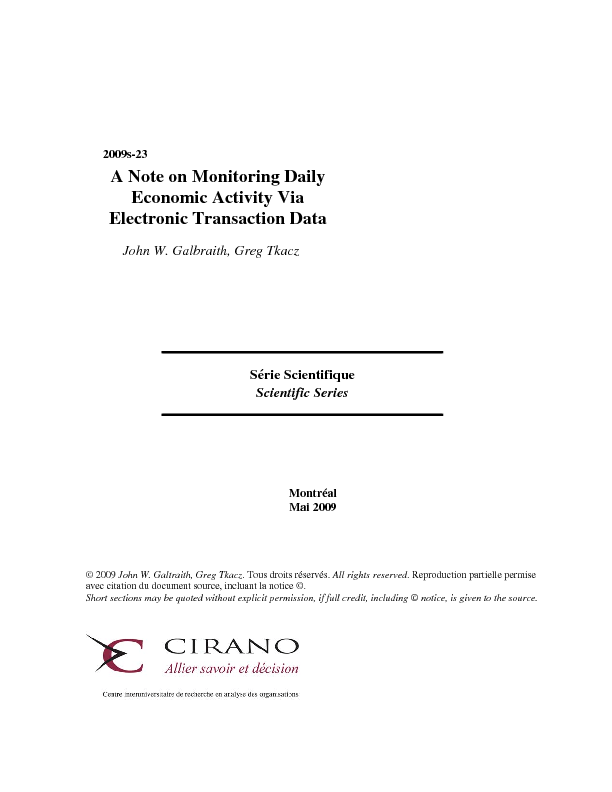A Note on Monitoring Daily Economic Activity Via Electronic Transaction Data
Economists have traditionally relied on monthly or quarterly data supplied by central statistical agencies for macroeconomic monitoring. However, technological advances of the past several years have resulted in new high-frequency data sources that could potentially provide more accurate and timely information on the current level of economic activity. In this paper we explore the usefulness of electronic transactions as real-time indicators of economic activity, using Canadian debit card data, and using two potentially important economic events as examples. In particular we are able to analyze expenditure patterns around the September 11 terrorist attacks and the August 2003 electrical blackout, and are able to note qualitative differences in the effects of these events which could not be observed through aggregate measures.
[ - ]




